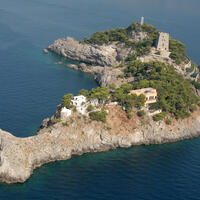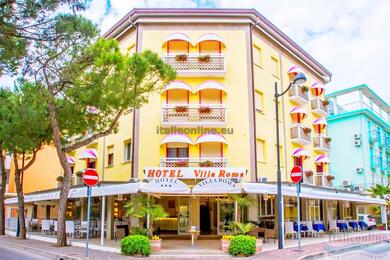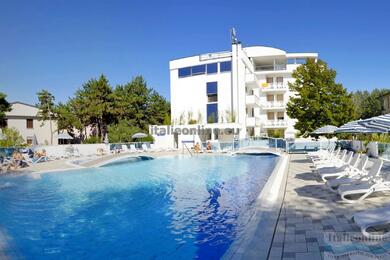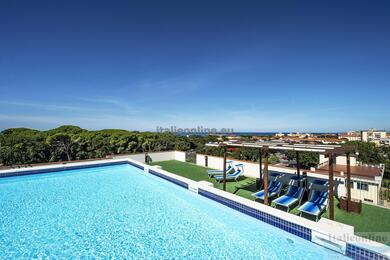Located on the Alpe Cimbra in Lavarone, the Vaia Dragon is a unique sculpture that has become a symbol of the power of nature and recovery after the devastating Vaia storm of 2018. Italian artist Marco Martalar created this majestic wooden sculpture from fallen trees destroyed by this particular storm. The dragon has become a popular tourist destination, both in summer and winter.
How to get to the Vaia dragon
The dragon is accessible by several hiking trails that lead through the Alpe Cimbra mountain landscape. The most recommended route is the Sentiero del Drago (Dragon Trail), which starts, for example, in the localities of Bertoldi or Gionghi. From Bertoldi you can walk through the village of Slaghenaufi and follow the signs towards the dragon. The total length of the route from the car park takes approximately one hour on foot. There is also the option of using the Tablat cable car, which will take you closer to the top of the mountain.
Symbolism and meaning of the dragon
The dragon statue is not only a work of art, but also a reminder of the destructive storm of Vaia and the power of nature. The 2018 storm destroyed large areas of forest in northern Italy, and Martalar decided to use this wood to create a work of art that will serve as a reminder of the fragility of nature. The piece follows the philosophy of land art - the dragon is made of organic material and will naturally decompose over time. So hurry up and catch it!
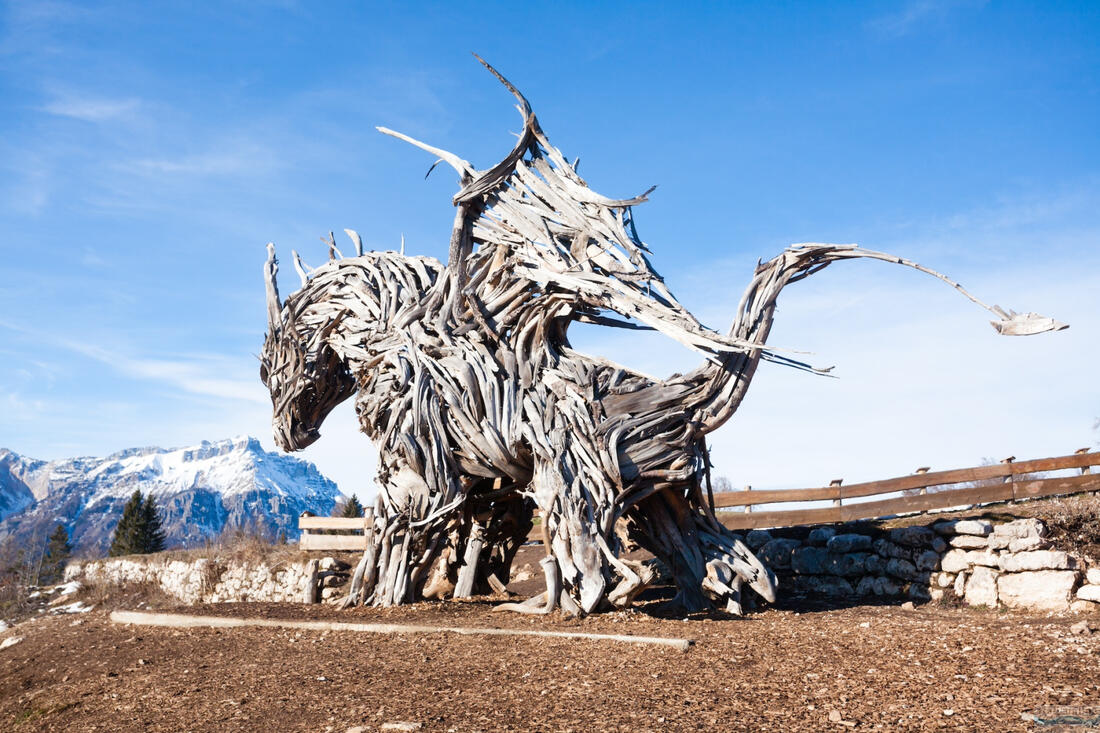
Visit in winter
The Vaia dragon is accessible even in winter, when snow covers the landscape. However, it is important to have the right equipment for winter visits - sturdy boots, snowshoes or trekking poles are recommended due to the slippery and snowy trails. During the winter months, the dragon often looks like something out of a fairy tale, covered in snow and surrounded by a quiet winter landscape
The dragon trail is part of a wider system of hiking trails in the Alpe Cimbra area, where you can also explore other themed trails such assentiero delle Leggende (Trail of the Legends) or Sentiero del Respiro degli Alberi (Trail of the Breath of the Trees), which combine natural beauty with art installations in the landscape.




